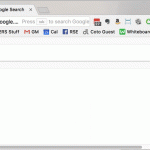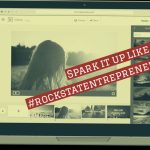ENTREPRENEUR BIZ TIPS: Using Voice To Detect And Monitor Health Conditions | Yuval Mor | TEDxGateway
Here’s Great Tip: Using Voice To Detect And Monitor Health Conditions | Yuval Mor | TEDxGateway
Here is Something You Should See…
Can the voice give indications about our health? Can the human voice be used as a biomarker, a remote sensor? Research shows that it can – but how?
Listen to this talk to learn how combining a human voice with AI and Big Data can deliver a powerful health monitoring tool as part of a telemedicine solution. Yuval, currently the CEO of Ummanu Health, is an entrepreneur in his heart. He has over 25 years of experience leading early stage, high-tech and healthcare companies to successful exists and he loves to take on innovative, breakthrough ideas and bring them to the market to address big challenges.
Ummanu Health is a world-leading Telemedicine company. Yuval previously held VP sales and marketing positions at RADCOM (IPO), Pentacom (acquired by Cisco), GO Networks (acquired by NextWave) and was the CEO of CACE Technologies (acquired by Riverbed) as well as the Founder and CEO of Beyond Verbal Communication (now Vocalis Health).
He studied computer science and economics in Tel Aviv University and holds a MSc. in Management from Stanford University Graduate School of Business (GSB). This talk was given at a TEDx event using the TED conference format but independently organized by a local community. Learn more at




6 Replies to “ENTREPRENEUR BIZ TIPS: Using Voice To Detect And Monitor Health Conditions | Yuval Mor | TEDxGateway”
Thank you
This is amazing !
This is awesome!
You're right, we can detect and monitor our health condition using voice. Lovely watching and listening to you here on the top of the mountain of Italy, thanks to technology, YouTube and TEDx.
Good talk. Basically a mobile can be used as a sonar to build a 3D model by a simple mic and speaker; I think even the “Wifi”-signal can create a model of non-surface shapes – but that’s not considered hearable. Indeed one could decide to analyze data to localize areas of where “a virus” are popping up – the moral implications goes as far the maturity of the society.
I’m sure a “corona” spread prediction and even an individual diagnosis can be made depending on the condition- but think of the potential benefit of just getting a percentage of likeliness, that can save a ton of workload directing cases to proper care. Automation is the future and humans once again should be the one causing a human error factor; humans should focus on collectively improving algorithms and be more aware of wasting time on repetitive tasks stressing out. Also, prevention with a good heart with proprietary respect for life should perhaps be prioritized above, sometimes impulse, reactiveness
Sounds interesting!